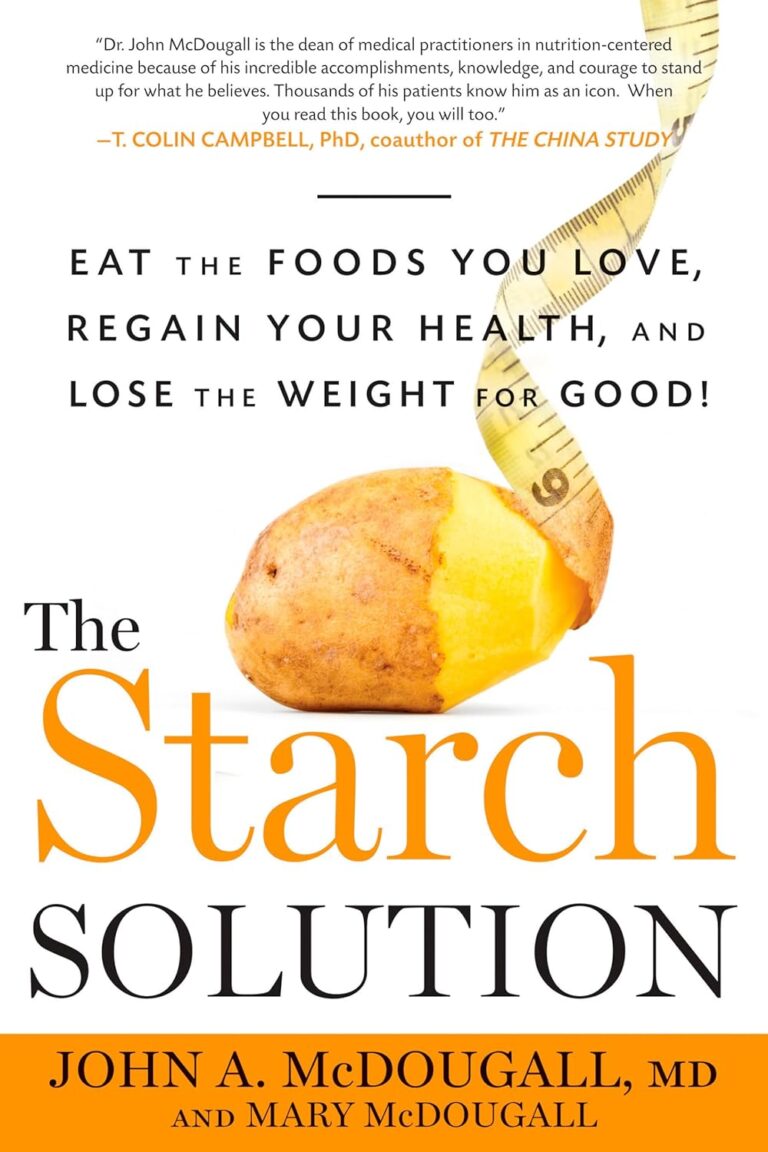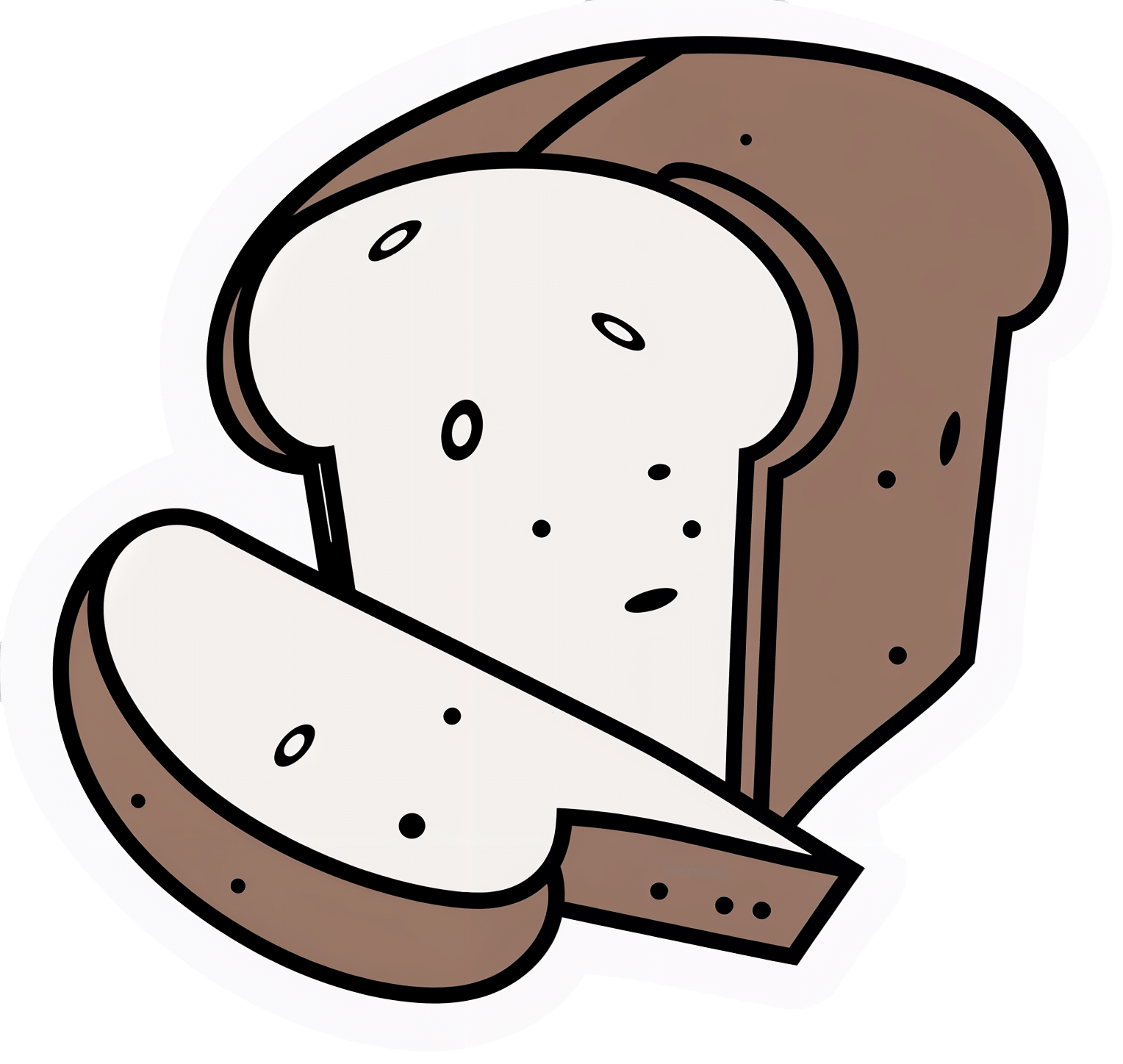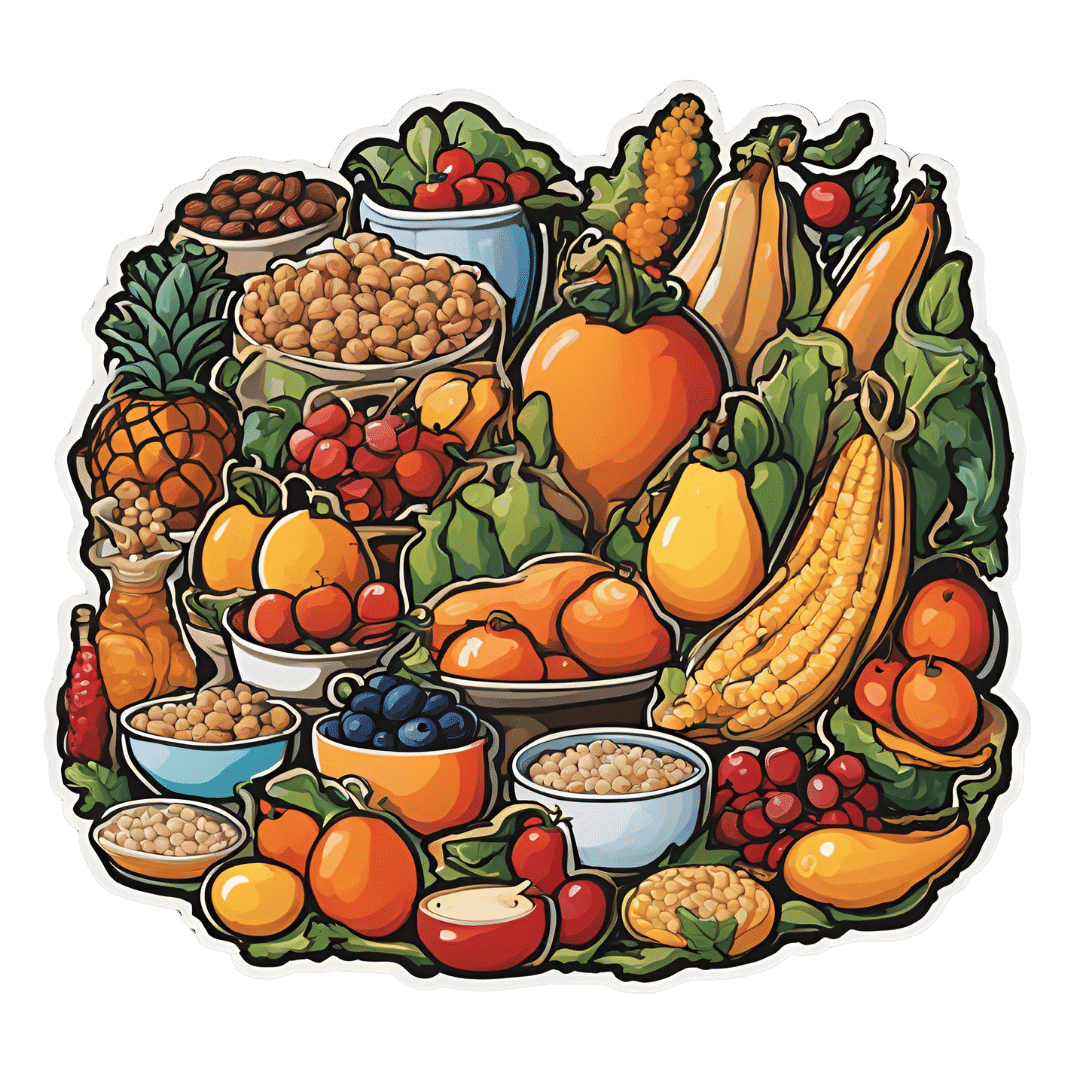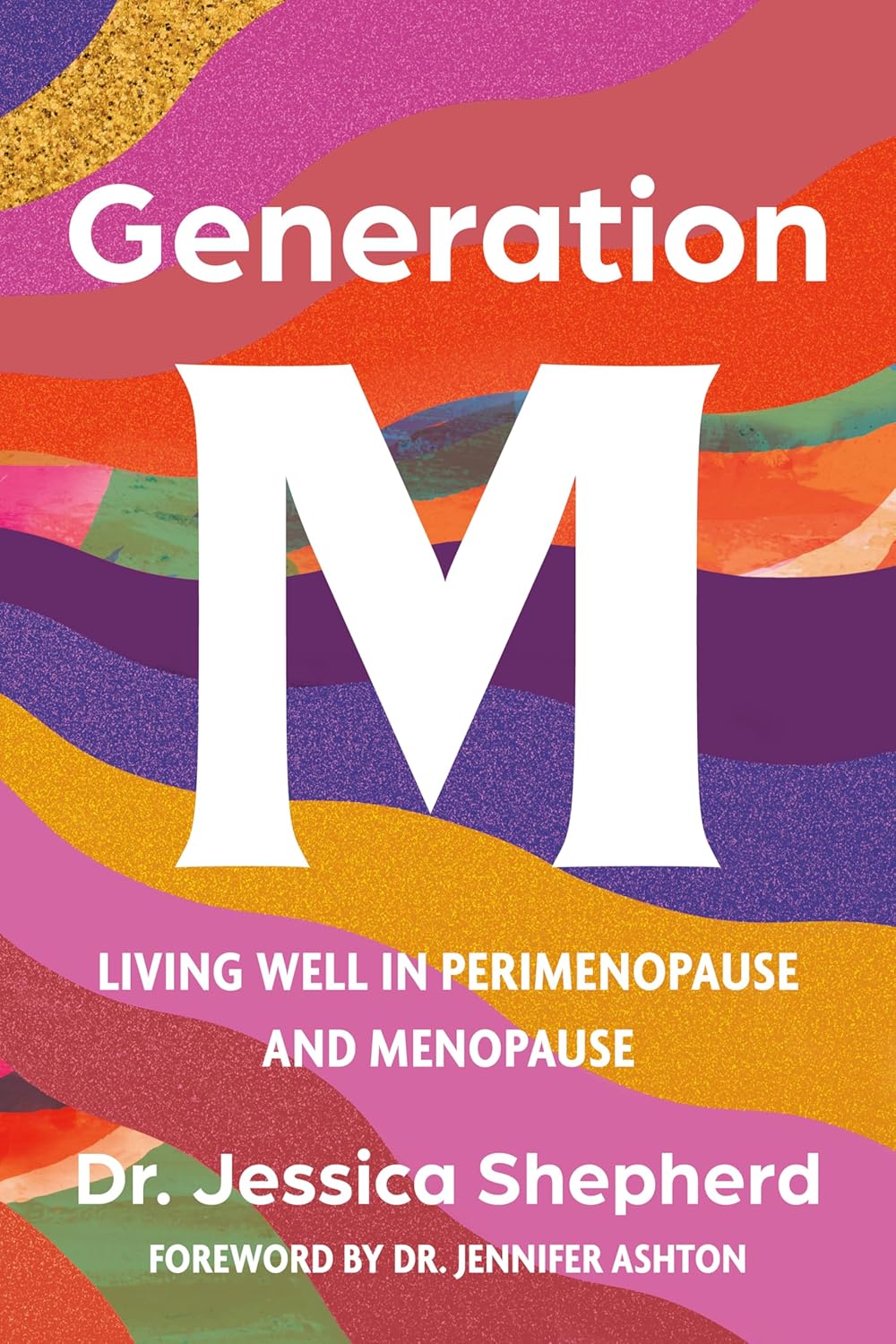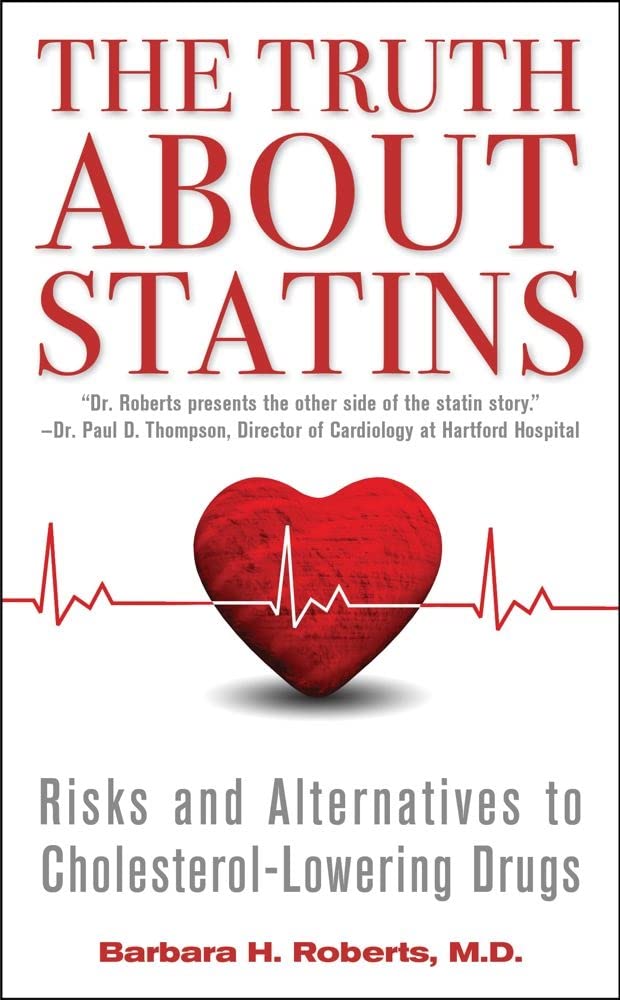
The Truth About Statins – by Barbara H. Roberts, M.D.
10almonds is reader-supported. We may, at no cost to you, receive a portion of sales if you purchase a product through a link in this article.
All too often, doctors looking to dispense a “quick fix” will prescribe from their playbook of a dozen or so “this will get you out of my office” drugs. Most commonly, things that treat symptoms rather than the cause. Sometimes, this can be fine! For example, in some cases, painkillers and antidepressants can make a big improvement to people’s lives. What about statins, though?
Prescribed to lower cholesterol, they broadly do exactly that. However…
Dr. Roberts wants us to know that we could be missing the big picture of heart health, and making a potentially fatal mistake.
This is not to say that the book argues that statins are necessarily terrible, or that they don’t have their place. Just, we need to understand what they will and won’t do, and make an informed choice.
To which end, she does advise regards when statins can help the most, and when they may not help at all. She also covers the questions to ask if your doctor wants to prescribe them. And—all so frequently overlooked—the important differences between men’s and women’s heart health, and the implications these have for the efficacy (or not) of statins.
With regard to the “alternatives to cholesterol-lowering drugs” promised in the subtitle… we won’t keep any secrets here:
Dr. Roberts (uncontroversially) recommends the Mediterranean diet. She also provides two weeks’ worth of recipes for such, in the final part of the book.
All in all, an important book to read if you or a loved one are taking, or thinking of taking, statins.
Pick up your copy of The Truth About Statins on Amazon today!
Don’t Forget…
Did you arrive here from our newsletter? Don’t forget to return to the email to continue learning!
Recommended
Learn to Age Gracefully
Join the 98k+ American women taking control of their health & aging with our 100% free (and fun!) daily emails:
-
Easy Ways To Fix Brittle, Dry, Wiry Hair
10almonds is reader-supported. We may, at no cost to you, receive a portion of sales if you purchase a product through a link in this article.
Dr. Sam Ellis, a dermatologist, specializes in skin, hair, and nail care—and she’s here with professional knowledge:
Tackling the problem at the root
As we age, hair becomes less shiny, more brittle, coarse, wiry, or gray. More concerningly for many, hair thinning and shedding increases due to shortened growth phases and hormonal changes.
The first set of symptoms there are largely because sebum production decreases, leading to dry hair. It’s worth bearing in mind though, that factors like UV radiation, smoking, stress, and genetics contribute to hair aging too. So while we can’t do much about genetics, the modifiable factors are worth addressing.
Menopause and the corresponding “andropause” impact hair health, and hormonal shifts, not just aging, drive many hair changes. Which is good to know, because it means that HRT (mostly: topping up estrogen or testosterone as appropriate) can make a big difference. Additionally, topical/oral minoxidil and DHT blockers (such as finasteride or dutasteride) can boost hair density. These things come with caveats though, so do research any possible treatment plan before embarking on it, to be sure you are comfortable with all aspects of it—including that if you use minoxidil, while on the one hand it indeed works wonders, on the other hand, you’ll then have to keep using minoxidil for the rest of your life or your hair will fall out when you stop. So, that’s a commitment to be thought through before beginning.
Nutritional deficiencies (iron, zinc, vitamin D) and insufficient protein intake hinder hair growth, so ensure proper nutrition, with sufficient protein and micronutrients.
While we’re on the topic of “from the inside” things: take care to manage stress healthily, as stress negatively affects hair health.
Now, as for “from the outside”…
Dr. Ellis recommends moisturizing shampoos/conditioners; Virtue and Dove brands she mentions positively. She also recommends bond repair products (such as K18 and Olaplex) that restore hair integrity, and heat protectants (she recommends: Unite 7 Seconds) as well as hair oils in general that improve hair condition.
For more on all of this, enjoy:
Click Here If The Embedded Video Doesn’t Load Automatically!
Want to learn more?
You might also like to read:
Take care!
Share This Post
-
The Healthiest Bread Recipe You’ll Probably Find
10almonds is reader-supported. We may, at no cost to you, receive a portion of sales if you purchase a product through a link in this article.
It’s Q&A Day at 10almonds!
Have a question or a request? You can always hit “reply” to any of our emails, or use the feedback widget at the bottom!
In cases where we’ve already covered something, we might link to what we wrote before, but will always be happy to revisit any of our topics again in the future too—there’s always more to say!
As ever: if the question/request can be answered briefly, we’ll do it here in our Q&A Thursday edition. If not, we’ll make a main feature of it shortly afterwards!
So, no question/request too big or small
❝[About accidental scalding with water] Is cold water actually the best immediate treatment for a burn? Maybe there is something better, or something I should apply after the cold water.❞
If this is a case of spilled tea or similar—as in your story, which (apologies) we clipped for brevity—indeed, cold running water is best, and nothing else should be needed. It’s up to you whether you want to invest the time based on the extent of the scalding, but 10 minutes is recommended to minimize tissue damage.
If it’s a more severe scalding or burning, seek medical attention immediately. If it’s a burn to anywhere other than the airway, cold running water is still best for 10 minutes, but if you have to choose between that and professional medical attention, don’t delay the help.
If it’s a burn you’ve given 10 minutes of cold running water and it still hurts and/or has blistered, cover it in a sterile, non-adhesive dressing that extends well beyond the visible burn (because the actual damage probably extends further, and you don’t want to find this out the hard way later). If the burn is to the face, do still irrigate but not cover it; wait for help.
Do not apply any kind of cream, lotion, oil, etc. No matter how tempting, no matter where the burn is.
All of the above also goes for splashed oil, chemical burns, and electrical burns too (but obviously, make sure to get away from the electricity first).
Source: this ex-military writer was trained for this sort of thing and, suffice it to say, has dealt with more serious things than spilled tea before now.
Legal note: notwithstanding the above, we are a health science newsletter, not paramedics. Also, circumstances may differ, and best practices may change. In the case of serious injury, call emergency services first, and follow their instructions over ours.
Take care!
Share This Post
-
What Do The Different Kinds Of Fiber Do? 30 Foods That Rank Highest
10almonds is reader-supported. We may, at no cost to you, receive a portion of sales if you purchase a product through a link in this article.
We’ve talked before about how important fiber is:
Why You’re Probably Not Getting Enough Fiber (And How To Fix It)
And even how it’s arguably the most important dietary factor when it comes to avoiding heart disease:
What Matters Most For Your Heart? Eat More (Of This) For Lower Blood Pressure ← Spoiler: it’s fiber
And yes, that’s even when considered alongside other (also laudable) dietary interventions such as lowering intake of sodium, various kinds of saturated fat, and red meat.
So, what should we know about fiber, aside from “aim to get nearer 40g/day instead of the US average 16g/day”?
Soluble vs Insoluble
The first main way that dietary fibers can be categorized is soluble vs insoluble. Part of the difference is obvious, but bear with us, because there’s more to know about each:
- Soluble fiber dissolves (what a surprise) in water and, which part is important, forms a gel. This slows down things going through your intestines, which is important for proper digestion and absorption of nutrients (as well as avoiding diarrhea). Yes, you heard right: getting enough of the right kind of fiber helps you avoid diarrhea.
- Insoluble fiber does not dissolve (how shocking) in water and thus mostly passes through undigested by us (some will actually be digested by gut microbes who subsist on this, and in return for us feeding them daily, they make useful chemicals for us). This kind of fiber is also critical for healthy bowel movements, because without it, constipation can ensue.
Both kinds of fiber improve just about every metric related to blood, including improving triglycerides and improving insulin sensitivity and blood glucose levels. Thus, they help guard against various kinds of cardiovascular disease, diabetes, and metabolic disease in general. Do note that because whatever’s good for your heart/blood is good for your brain (which requires a healthy heart and bloodstream to nourish it and take away waste), likely this also has a knock-on effect against cognitive decline, but we don’t have hard science for that claim so we’re going to leave that last item as a “likely”.
However, one thing’s for sure: if you want a healthy gut, heart, and brain, you need a good balance of soluble and insoluble fibers.
10 of the best for soluble fiber
Food Soluble Fiber Type(s) Soluble Fiber (g per serving) Insoluble Fiber Type(s) Insoluble Fiber (g per serving) Total Fiber (g per serving) Kidney beans (1 cup cooked) Pectin, Resistant Starch 1.5–2 Hemicellulose, Cellulose 6 8 Lentils (1 cup cooked) Pectin, Resistant Starch 1.5–2 Cellulose 6 7.5 Barley (1 cup cooked) Beta-glucan 3–4 Hemicellulose 2 6 Brussels sprouts (1 cup cooked) Pectin 1–1.5 Cellulose, Hemicellulose 2 3.5 Oats (1 cup cooked) Beta-glucan 2–3 Cellulose 1 3 Apples (1 medium) Pectin 1–2 Cellulose, Hemicellulose 2 3 Carrots (1 cup raw) Pectin 1–1.5 Cellulose, Hemicellulose 2 3 Citrus fruits (orange, 1 medium) Pectin 1–1.5 Cellulose 1 2.5 Flaxseeds (2 tbsp) Mucilage, Lignin 1–1.5 Cellulose 1 2.5 Psyllium husk (1 tbsp) Mucilage 3–4 Trace amounts 0 3–4 10 of the best for insoluble fiber
Food Soluble Fiber Type(s) Soluble Fiber (g per serving) Insoluble Fiber Type(s) Insoluble Fiber (g per serving) Total Fiber (g per serving) Wheat bran (1 cup) Trace amounts 0 Cellulose, Lignin 6–8 6–8 Black beans (1 cup cooked) Pectin, Resistant Starch 1.5 Cellulose 6 7.5 Brown rice (1 cup cooked) Trace amounts 0.5 Hemicellulose, Lignin 2–3 2.5–3.5 Popcorn (3 cups popped) Trace amounts 0.5 Hemicellulose 3 3.5 Broccoli (1 cup cooked) Pectin 1 Cellulose, Hemicellulose 4 5 Green beans (1 cup cooked) Trace amounts 0.5 Cellulose, Hemicellulose 3 3.5 Sweet potatoes (1 cup cooked) Pectin 1–1.5 Cellulose 3 4.5 Whole wheat bread (1 slice) Trace amounts 0.5 Cellulose, Hemicellulose 1 1.5 Pears (1 medium) Pectin 1 Cellulose, Hemicellulose 4 5 Almonds (1 oz) Trace amounts 0.5 Cellulose, Hemicellulose 2 2.5 10 of the best for a balance of both
Food Soluble Fiber Type(s) Soluble Fiber (g per serving) Insoluble Fiber Type(s) Insoluble Fiber (g per serving) Total Fiber (g per serving) Raspberries (1 cup) Pectin 1 Cellulose 5 6 Edamame (1 cup cooked) Pectin 1 Cellulose 5 6 Chia seeds (2 tbsp) Mucilage, Pectin 2–3 Lignin, Cellulose 3 5.5 Artichokes (1 medium) Inulin 1 Cellulose, Hemicellulose 5 6 Avocado (1 medium) Pectin ~2 Cellulose 4 6 Black beans (1 cup cooked) Pectin, Resistant Starch 1.5 Cellulose 6 7.5 Quinoa (1 cup cooked) Pectin, Saponins 1 Cellulose, Hemicellulose 3 4 Spinach (1 cup cooked) Pectin 0.5 Cellulose, Lignin 3 3.5 Prunes (1/2 cup) Pectin, Sorbitol 2 Cellulose 4 6 Figs (3 medium) Pectin 1 Cellulose 2 3 You’ll notice that the above “balance” is not equal; that’s ok; we need greater quantities of insoluble than soluble anyway, so it is as well that nature provides such.
This is the same kind of balance when we talk about “balanced hormones” (does not mean all hormones are in equal amounts; means they are in the right proportions) or “balanced microbiome” (does not mean that pathogens and friendly bacteria are in equal numbers), etc.
Some notes on the above:
About those fiber types, some of the most important soluble ones to aim for are:
- Beta-glucan: found in oats and barley, it supports heart health.
- Pectin: found in fruits like apples, citrus, and pears, it helps with cholesterol control.
- Inulin: a type of prebiotic fiber found in artichokes.
- Lignin: found in seeds and wheat bran, it has antioxidant properties.
- Resistant starch: found in beans and lentils, it acts as a prebiotic for gut health.
See also: When Is A Fiber Not A Fiber? The Food Additive You Do Want
One fiber to rule them all
Well, not entirely (we still need the others) but there is a best all-rounder:
The Best Kind Of Fiber For Overall Health?
Enjoy!
Share This Post
Related Posts
-
Generation M – by Dr. Jessica Shepherd
10almonds is reader-supported. We may, at no cost to you, receive a portion of sales if you purchase a product through a link in this article.
Menopause is something that very few people are adequately prepared for despite its predictability, and also something that very many people then neglect to take seriously enough.
Dr. Shepherd encourages a more proactive approach throughout all stages of menopause and beyond; she discusses “the preseason, the main event, and the after-party” (perimenopause, menopause, and postmenopause), which is important, because typically people take up an interest in perimenopause, are treating it like a marathon by menopause, and when it comes to postmenopause, it’s easy to think “well, that’s behind me now”, and it’s not, because untreated menopause will continue to have (mostly deleterious) cumulative effects until death.
As for HRT, there’s a chapter on that of course, going into quite some detail. There is also plenty of attention given to popular concerns such as managing weight changes and libido changes, as well as oft-neglected topics such as brain changes, as well as things considered more cosmetic but that can have a big impact on mental health, such as skin and hair.
The style throughout is pop-science; friendly without skimping on detail and including plenty of good science.
Bottom line: if you’d like a fairly comprehensive overview of the changes that occur from perimenopause all the way to menopause and well beyond, then this is a great book for that.
Click here to check out Generation M, and live well at every stage of life!
Don’t Forget…
Did you arrive here from our newsletter? Don’t forget to return to the email to continue learning!
Learn to Age Gracefully
Join the 98k+ American women taking control of their health & aging with our 100% free (and fun!) daily emails:
-
Is Dairy Scary?
10almonds is reader-supported. We may, at no cost to you, receive a portion of sales if you purchase a product through a link in this article.
Is Dairy Scary?
Milk and milk products are popularly enjoyed as a good source of calcium and vitamin D.
In contrast, critics of dairy products (for medical reasons, rather than ethical, which is another matter entirely and beyond the scope of this article) point to risks of cancer, heart disease, and—counterintuitively—osteoporosis. We’ll focus more on the former, but touch on the latter two before closing.
Dairy & Cancer
Evidence is highly conflicting. There are so many studies with so many different results. This is partially explicable by noting that not only is cancer a many-headed beast that comes in more than a hundred different forms and all or any of them may be affected one way or another by a given dietary element, but also… Not all milk is created equal, either!
Joanna Lampe, of the Public Health Sciences division, Fred Hutchinson Cancer Research Center in Seattle, writes:
❝Dairy products are a complex group of foods and composition varies by region, which makes evaluation of their association with disease risk difficult. For most cancers, associations between cancer risk and intake of milk and dairy products have been examined only in a small number of cohort studies, and data are inconsistent or lacking❞
In her systematic review of studies, she noted, for example, that:
- Milk and dairy products contain micronutrients and several bioactive constituents that may influence cancer risk and progression
- There’s probable association between milk intake and lower risk of colorectal cancer
- There’s a probable association between diets high in calcium and increased risk of prostate cancer
- Some studies show an inverse association between intake of cultured dairy products and bladder cancer (i.e., if you eat yogurt you’re less likely to get bladder cancer)
Since that systemic review was undertaken, more research has been conducted, and the results are… Not conclusive, but converging towards a conclusion:
- Dairy products can increase or decrease cancer risk
- The increase in cancer risk seems strongest when milk is consumed in quantities that result in too much calcium. When it comes to calcium, you can absolutely have too much of a good thing—just ask your arteries!
- The decrease in cancer seems to be mostly, if not exclusively, from fermented dairy products. This usually means yogurts. The benefit here is not from the milk itself, but rather from the gut-friendly bacteria.
You may be wondering: “Hardened arteries, gut microbiome health? I thought we were talking about cancer?” and yes we are. No part of your health is an island unrelated to other parts of your health. One thing can lead to another. Sometimes we know how and why, sometimes we don’t, but it’s best to not ignore the data.
The bottom line on dairy products and cancer is:
- Consuming dairy products in general is probably fine
- Yogurt, specifically, is probably beneficial
Dairy and Heart Disease
The reason for the concern is clear enough: it’s largely assumed to be a matter of saturated fat intake.
The best combination of “large” and “recent” that we found was a three-cohort longitudinal study in 2019, which pretty much confirms what was found in smaller or less recent studies:
- There is some evidence to suggest that consumption of dairy can increase all-cause mortality in general, and death from (cancer and) cardiovascular disease in particular
- The evidence is not, however, overwhelming. It is marginal.
Dairy and Osteoporosis
Does dairy cause osteoporosis? Research here tends to fall into one of two categories when it comes to conclusions, so we’ll give an example of each:
- “Results are conflicting, saying yes/no/maybe, and basically we just don’t know”
- “Results are conflicting, but look: cross-sectional and case-control studies say yes; cohort studies say maybe or no; we prefer the cohort studies”
See them for yourself:
- Osteoporosis: Is milk a kindness or a curse?
- Consumption of milk and dairy products and risk of osteoporosis and hip fracture
Conclusion: really, the jury is very much still out on this one
Summary:
- Moderate consumption of dairy products is almost certainly fine
- More specifically: it probably has some (small) pros and some (small) cons
- Yogurt is almost certainly healthier than other dairy products, and is almost universally considered a healthy food (assuming not being full of added sugar etc, of course)
- If you’re going to have non-dairy alternatives to milk, choose wisely!
That’s all we have time for today, but perhaps in a future edition we’ll do a run-down of the pros and cons of various dairy alternatives!
Don’t Forget…
Did you arrive here from our newsletter? Don’t forget to return to the email to continue learning!
Learn to Age Gracefully
Join the 98k+ American women taking control of their health & aging with our 100% free (and fun!) daily emails:
-
From Lupus To Arthritis: New Developments
10almonds is reader-supported. We may, at no cost to you, receive a portion of sales if you purchase a product through a link in this article.
This week’s health news round-up highlights some things that are getting better, and some things that are getting worse, and how to be on the right side of both:
New hope for lupus sufferers
Lupus is currently treated mostly with lifelong medications to suppress the immune system, which is not only inconvenient, but also can leave people more open to infectious diseases. The latest development uses CAR T-cell technology (as has been used in cancer treatment for a while) to genetically modify cells to enable the body’s own immune system to behave properly:
Read in full: Exciting new lupus treatment could end need for lifelong medication
Related: How to Prevent (Or Reduce The Severity Of) Inflammatory Diseases
It’s in the hips
There are a lot of different kinds of hip replacements, and those with either delta ceramic or oxidised zirconium head with a highly cross-linked polyethylene liner/cup have the lowest risk of need for revision in the 15 years after surgery. This is important, because obviously, once it’s in there, you want it to be able to stay in there and not have to be touched again any time soon:
Read in full: Study identifies hip implant materials with the lowest risk of needing revision
Related: Nobody Likes Surgery, But Here’s How To Make It Much Less Bad
Sooner is better than later
Often, people won’t know about an unwanted pregnancy in the first six weeks, but for those who are able to catch it early, Very Early Medical Abortion (VEMA) offers a safe an effective way of doing so, with success rate being linked to earliness of intervention:
Read in full: Very early medication abortion is effective and safe, study finds
Related: What Might A Second Trump Presidency Look Like for Health Care?
Increased infectious disease risks from cattle farms
Many serious-to-humans infectious diseases enter the human population via the animal food chain, and in this case, bird flu becoming more rampant amongst cows is starting to pose a clear threat to humans, so this is definitely something to be aware of:
Read in full: Bird flu infects 1 in 14 dairy workers exposed; CDC urges better protections
Related: With Only Gloves To Protect Them, Farmworkers Say They Tend Sick Cows Amid Bird Flu
Herald of woe
Gut health affects most of the rest of health, and there are a lot of links between gut and bone health. In this case, an association has been found between certain changes in the gut microbiome, and subsequent onset of rheumatoid arthritis:
Read in full: Changes in gut microbiome could signal onset of rheumatoid arthritis
Related: Stop Sabotaging Your Gut
Take care!
Don’t Forget…
Did you arrive here from our newsletter? Don’t forget to return to the email to continue learning!
Learn to Age Gracefully
Join the 98k+ American women taking control of their health & aging with our 100% free (and fun!) daily emails:

